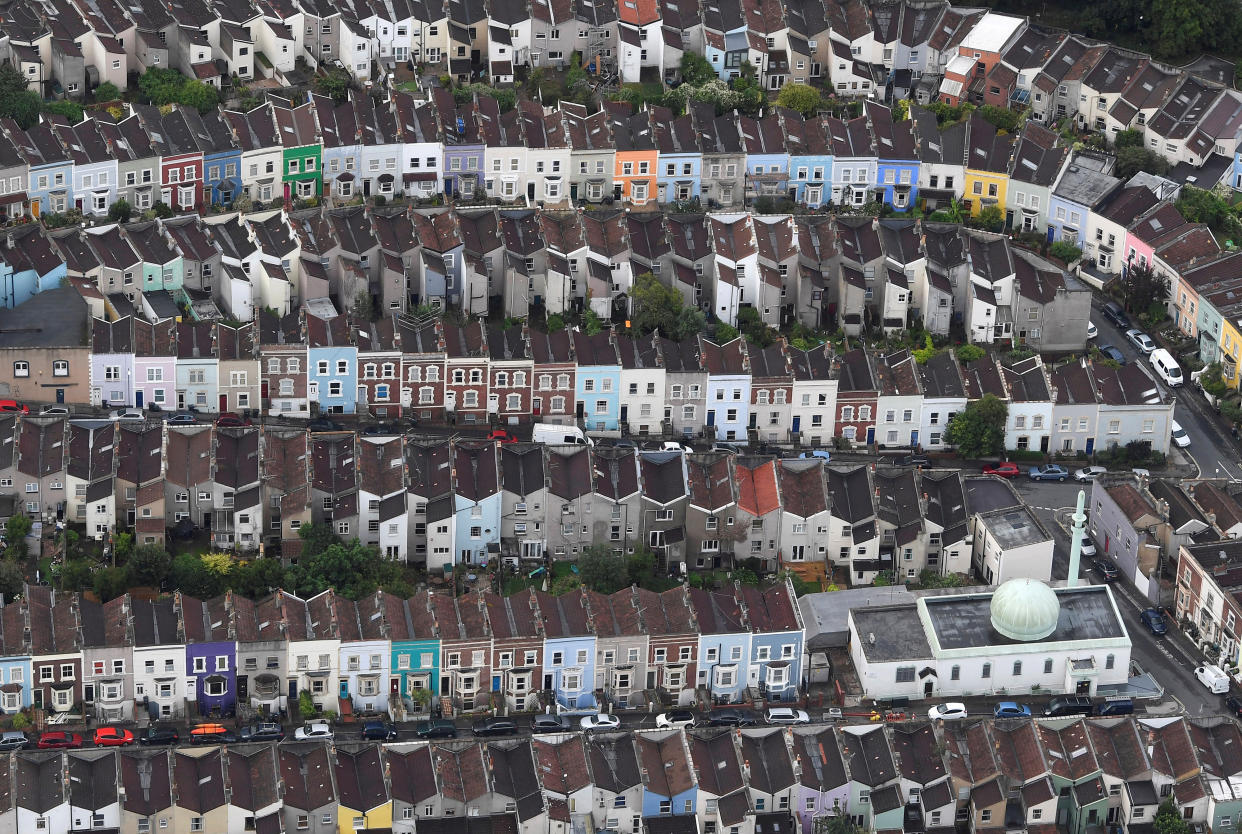UK house prices keep rising despite Brexit turmoil

UK property prices rose in October despite continued political turmoil as Britain edged closer to Brexit, new figures show.
Analysts also predicted prices could continue to rise, fuelled by low interest rates and “pent-up demand” which could be unleashed if uncertainty fades when Britain leaves the EU.
The latest house price index from Nationwide suggests average prices have grown by 0.2% over the past month, and are 0.4% higher than a year ago.
The average UK property was sold for £215,368, with price growth below 1% for an 11th month in a row.
Prices are on average £800 higher than a year ago, compared with a £9,100 increase over the same period to October 2016.
Robert Gardner, chief economist at Nationwide, said growth appeared to have slowed because of weaker global economic growth and an “intensifying of Brexit uncertainty.”
READ MORE: How much less women earn than men throughout their lifetime
But he said underlying conditions in the housing market had remained “broadly stable” despite fears Britain could have crashed out of the EU without a deal at the end of October.
The number of mortgages approved has remained fairly consistent over the past two years.

“Solid labour market conditions and low borrowing costs appear to be offsetting the drag from the uncertain economic outlook The question is whether this pattern will continue,” he said.
“There were tentative signs of a softening in the jobs market in the three months to August, as employment fell, unemployment rose, and wage growth slowed a little.
“However, monthly data is often volatile and the unemployment rate remains close to 40 year lows and real earnings growth (i.e. after taking account of inflation) is close to levels prevailing before the financial crisis.
READ MORE: How no-deal Brexit could wipe out ‘generation’ of farmers and hit cheese prices
“Moreover, mortgage rates remain close to all-time lows – more than 95% of borrowers have opted for fixed rate deals in recent quarters, around half of which have opted to fix for five years.”
Gardner said potential UK interest rate rises in the years ahead were “likely to be capped” by global trends, with weak growth around the world sustaining downward pressure on rates.
Samuel Tombs, chief UK economist at Pantheon Macroeconomics, said falling rates could push up price growth.
"Past precedent suggests that the majority of the decline in mortgage rates will feed through to higher prices, not lower interest payments. Accordingly, we expect house prices to rise at a slightly faster pace next year," said Tombs.
READ MORE: London prices are falling - but still 50% higher than a decade ago
Jeremy Leaf, a north London estate agent and former residential chairman of the Royal Institute of Chartered Surveyors, said the figures suggested no “fireworks in the market” were visible or likely over the next few months.
'What we are seeing on the ground is a continuing determination to find common price ground between buyer and seller, which is reflected in no real change to these steady transaction numbers,” he said.
“There is no doubt, as far as we are concerned, that pent-up demand remains just waiting for the Brexit gun to fire before releasing what we expect to be a modest improvement in prices and activity.”

